I often see magnesium only considered when there's a significant deficiency. Especially around menopause, your body, sleep patterns, muscles, and hormones change. And magnesium influences all of these things. If you're wondering if it's time to start taking magnesium, you've come to the right place.
Why magnesium is so important after 50
Around age 50, a lot happens in your body. Everything changes during this phase. Menopause begins, and your hormones drop. You might notice that you sleep differently , that you recover less quickly after a walk or workout, or that your mood seems to fluctuate . Your need for certain nutrients increases, and magnesium is one of them.
It helps with:
- Maintaining strong bones , which is extra important when your estrogen drops
- Promotes relaxation and better sleep. It helps your nervous system relax.
- Relaxing muscles and nerves
- Supporting your blood pressure and heart
- Balancing hormones
And perhaps the most underestimated effect: your intestines function better with sufficient magnesium. And when your intestines are happy, you often are too.
💡 FUN FACT: Did you know that magnesium is involved in over 600 processes in your body? It's no wonder you notice when your supply is running low.
Symptoms of a magnesium deficiency
Here are a few signs that immediately set off the magnesium light in my head:
- Muscle cramps or twitching eyelids
- Sleeping poorly or waking up often
- Palpitations or increased blood pressure
- Restless feeling , becoming irritated more quickly
- Blockage
If you recognize yourself in one or more of these symptoms, you might be experiencing low magnesium levels. Consider this a sign that your body could use some extra attention (and magnesium!).

How much magnesium do you need?
For many women over 50, it's recommended to get about 300-400 mg of magnesium per day . But be careful: you often don't get more than 200 mg from food.
An avocado contains about 58mg of magnesium, and if you eat 28g of dark chocolate, you'll get 65mg of magnesium. You can also find magnesium in nuts, legumes, seeds, whole grains, seaweed, oily fish, bananas, and green leafy vegetables . Always choose these products from natural, organic farmland (or even biodynamic). Magnesium is extracted from the earth , and if the soil in which the product grows doesn't contain magnesium, it naturally can't absorb it. Unfortunately, most of our farmland has lost many of its resources and minerals .
If you have intestinal problems (e.g., IBS or a lot of inflammation) or if nutrients aren't being absorbed properly , it's possible your magnesium isn't being absorbed properly. There are also medications that speed up the elimination of magnesium , just like alcohol or caffeine .
In these cases, your magnesium needs are automatically somewhat higher, so supplementing can be especially smart. However, it's crucial to carefully consider the form of magnesium you take, as this determines HOW the magnesium can work.
Best forms of magnesium (and what I use myself)
There are many types of magnesium, but not all are easily absorbed . If your body indicates it needs a boost, it's important not to overload it.
My favorite is Magnesium bisglycinate . It:
- Is well absorbed into the body
- Has a relaxing effect, especially for your nervous system
- Is gentle on your intestines (no laxative effect)
Other favorites:
- Magnesium citrate : easily absorbed and good for the muscles
- Magnesium taurate : good for the heart and blood vessels
- Magnesium malate: good for the energy cycle in your body. It provides more energy, among other things.
What to absolutely avoid:
- Magnesium oxide : Cheap, but very poorly absorbed. Often only has a laxative effect. Cheap = expensive in this case. A waste of your money and your digestive system.
It's become a fad to add magnesium "extra" to everything, but just because you see products labeled "magnesium" doesn't necessarily mean it's beneficial. What matters is that it's in a good form that your body needs . Unfortunately, you really have to read the fine print on the ingredients list for that.
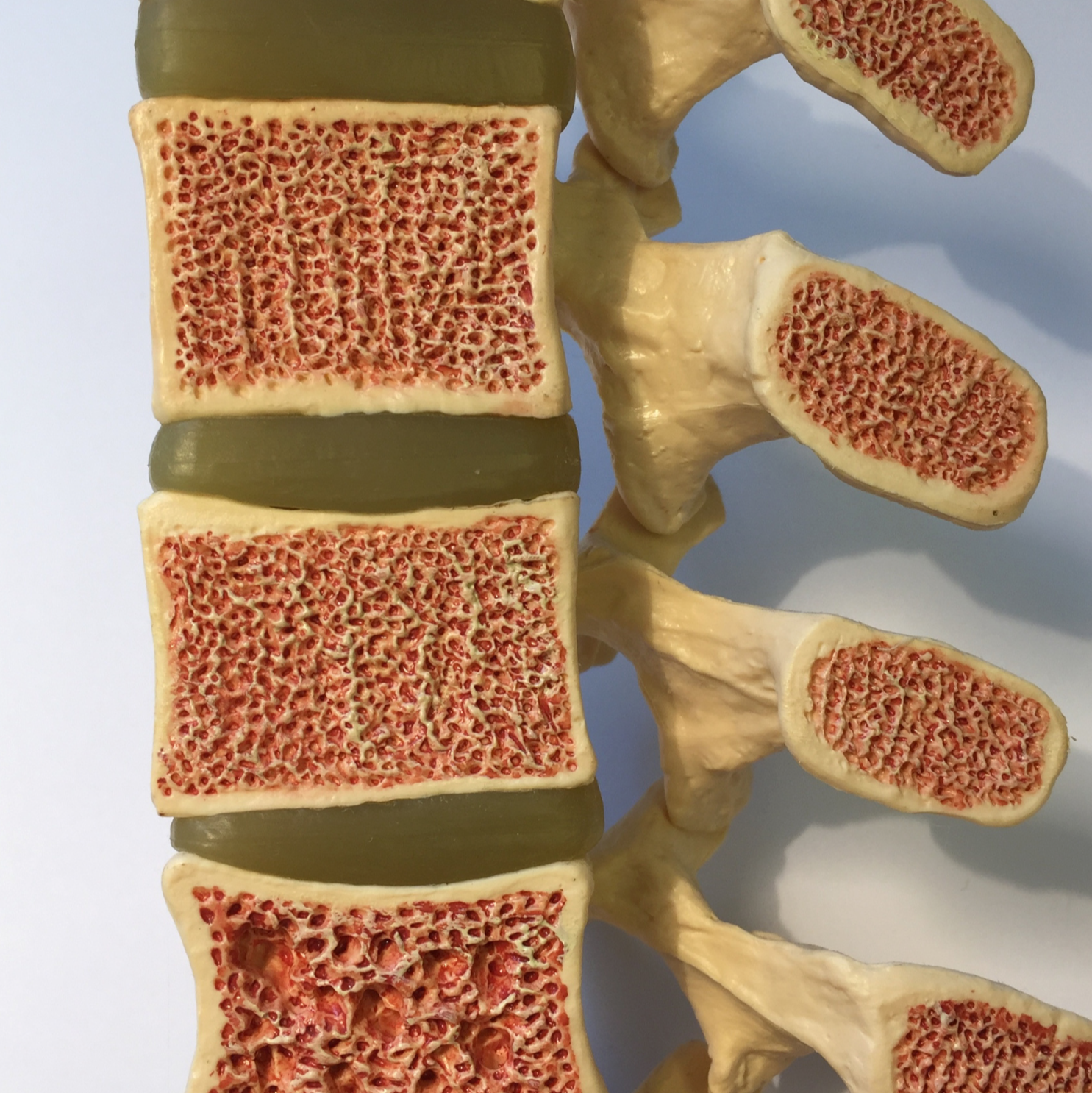
Strong Bones = Magnesium together with D3 + K2
60% of your magnesium is found in your bones , where it plays a crucial role in preventing osteoporosis and maintaining bone density . A 2023 study found that after menopause, approximately 1 in 3 women suffer bone fractures due to reduced bone density.
Because estrogen levels drop during menopause, bone tissue is broken down faster than it is built up. This causes bone density to decrease.
Magnesium deficiency is often associated with osteoporosis, as magnesium plays a key role in the calcification of cartilage and bone matrix , thus strengthening bones. Magnesium deficiency is also associated with lower parathyroid hormone (PTH) and vitamin D activity, both crucial for bone development.
Calcium and vitamin D3 + K2 are also crucial to keep your bones strong.
- Calcium is the most important mineral in your bones. It provides strength and structure.
- You need vitamin D3 to properly absorb calcium from food . If you don't have enough vitamin D3 in your body, you can't absorb calcium properly in your intestines. Read more about vitamin D3 deficiency.
- Magnesium converts vitamin D3 from an inactive form to an active form . This conversion allows your body to actually use the vitamin D3.
- Vitamin K2 regulates where calcium can go; it helps calcium get into your bones and teeth and prevents calcium from depositing in your soft tissues (such as your blood vessels).






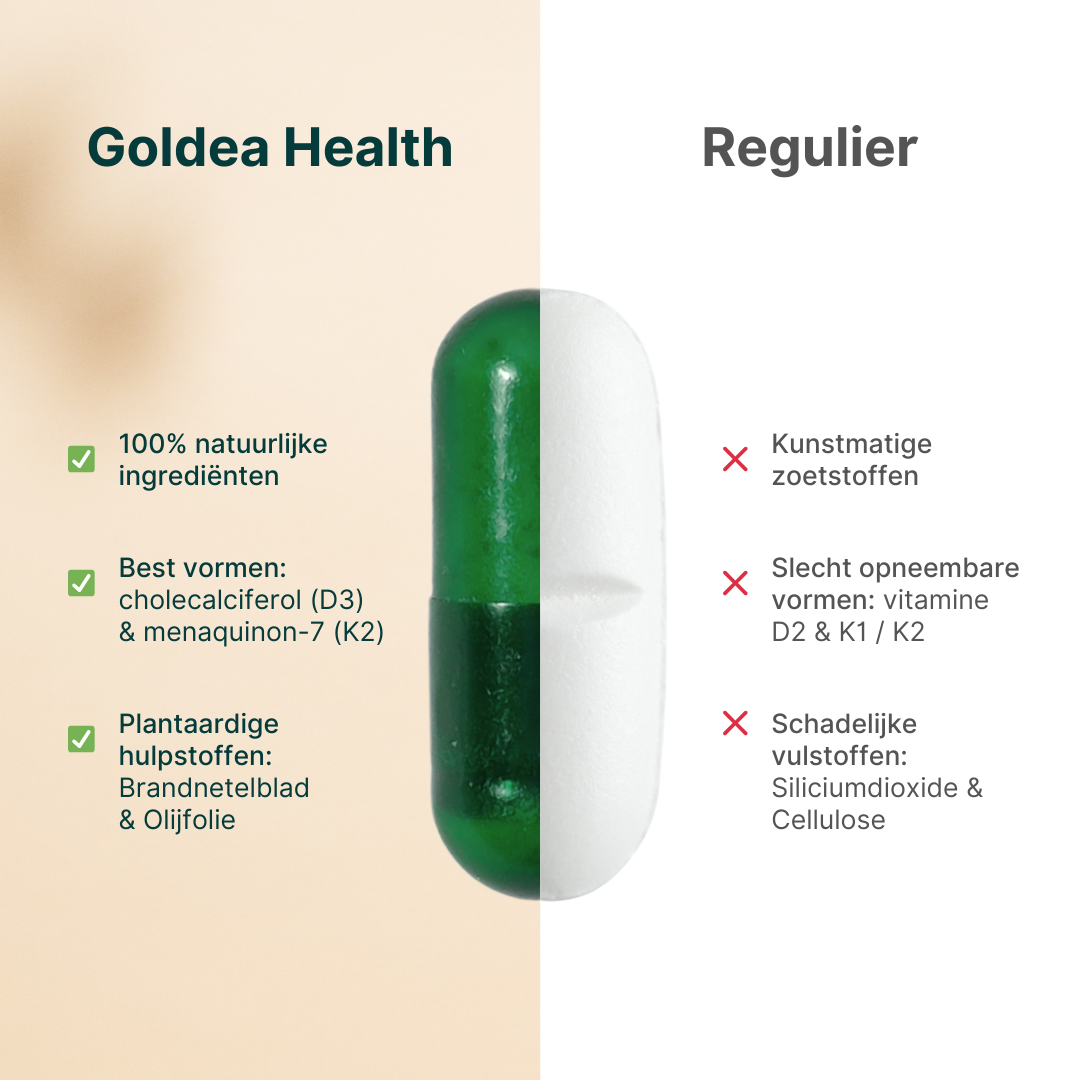
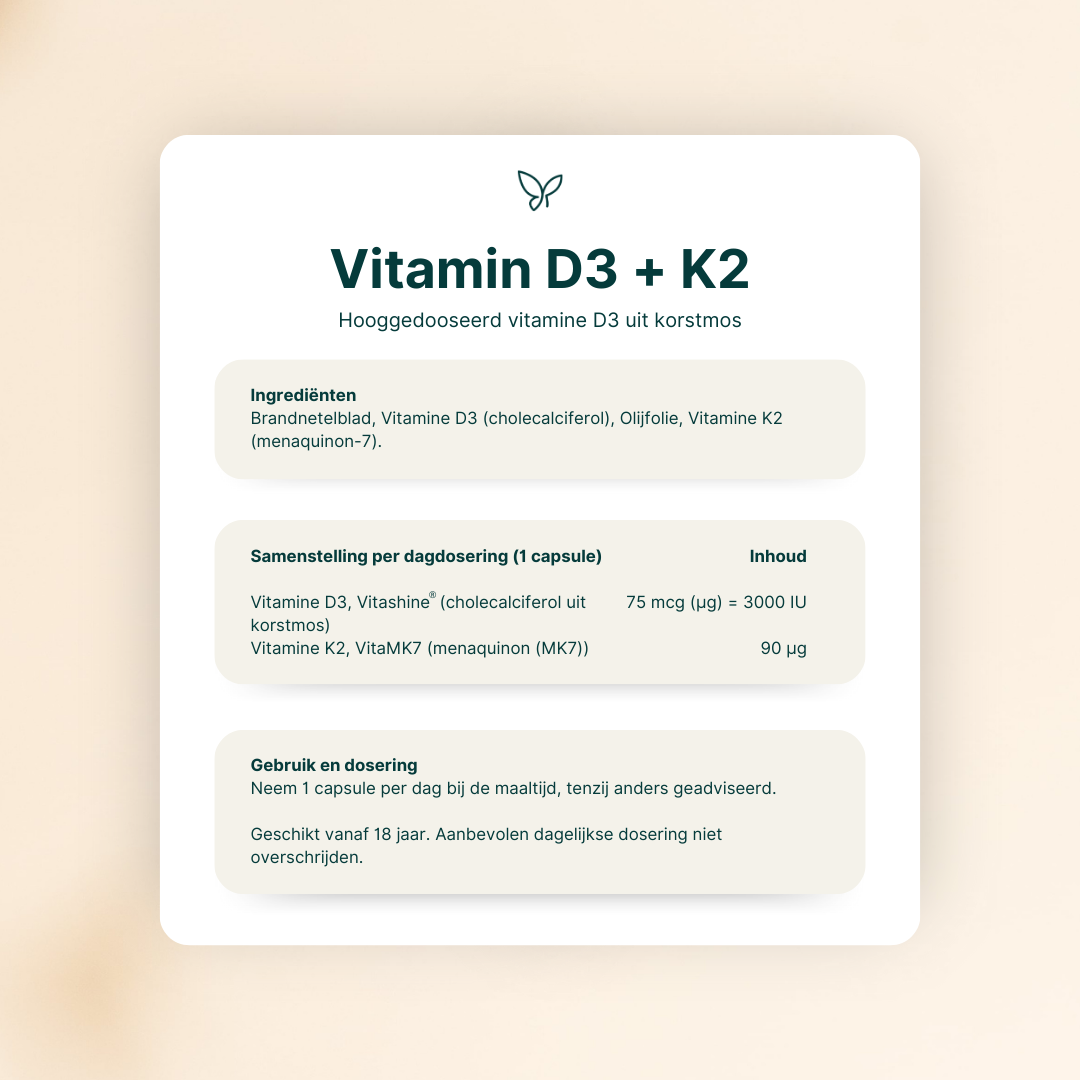








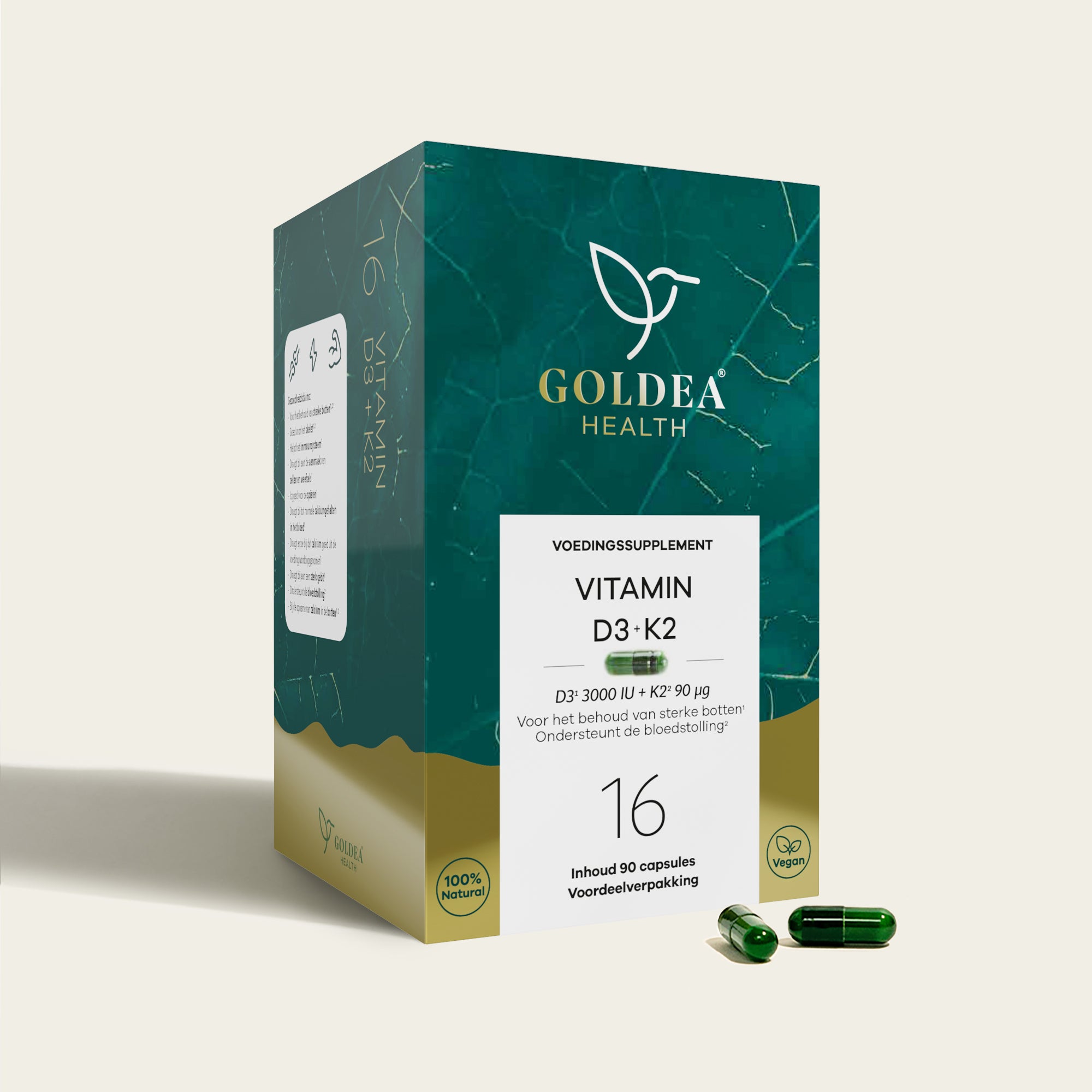

Vitamin D3 + K2
Now you understand why, besides magnesium, vitamin D3 and K2 are so important for maintaining strong bones . By maintaining all these nutrients in your body, you can maintain high bone density for longer . This is important not only for your bones, but also for your immune system and for ensuring your blood can clot properly if you injure yourself.
Magnesium for more peace, sleep and your nervous system
During and after menopause, you may experience significant sleep problems. Trouble falling asleep or staying asleep is very common in women aged 50 and over. And even if you do fall asleep, you wake up feeling less rested.
You're not alone. A review of 41 studies a few years ago concluded that an average of 51% of menopausal women experience sleep problems . And it often only really starts when you're in peri- or postmenopause. In premenopause, there's usually not much going on yet.
But there is hope. Magnesium appears to play a crucial role in your sleep-wake cycle . According to this study, magnesium helps balance your circadian rhythm . Think of it as your internal clock, ensuring your body is properly attuned to your day-night rhythm. A more recent study (2024) shows that magnesium helps your muscles relax , and that increasing your magnesium intake (either through diet or supplements) can help you sleep better.
And it goes beyond just sleep. Many women also notice increased anxiety or depression after menopause. Of course, many factors influence this, and magnesium is certainly not the only one. But clinical studies suggest that magnesium can help with depressive symptoms .
Magnesium has a calming effect on your nervous system. And you'll notice it. Especially because older people are more likely to have a deficiency , it's wise to keep a close eye on your magnesium status.
Always consult your doctor or therapist if you have any doubts about a new supplement.
Too Much Magnesium
It's not common for a magnesium level in the body to be too high . Your kidneys excrete excess magnesium, so you usually just pee it out. If you want to be sure you're not taking too much, keep track of your daily dietary magnesium intake .
You can also recognize an excess of magnesium by:
- Diarrhea
- Hypotension , or low blood pressure
- Nausea
- Yield
- Irregular heart rhythm
- Little strength in your muscles


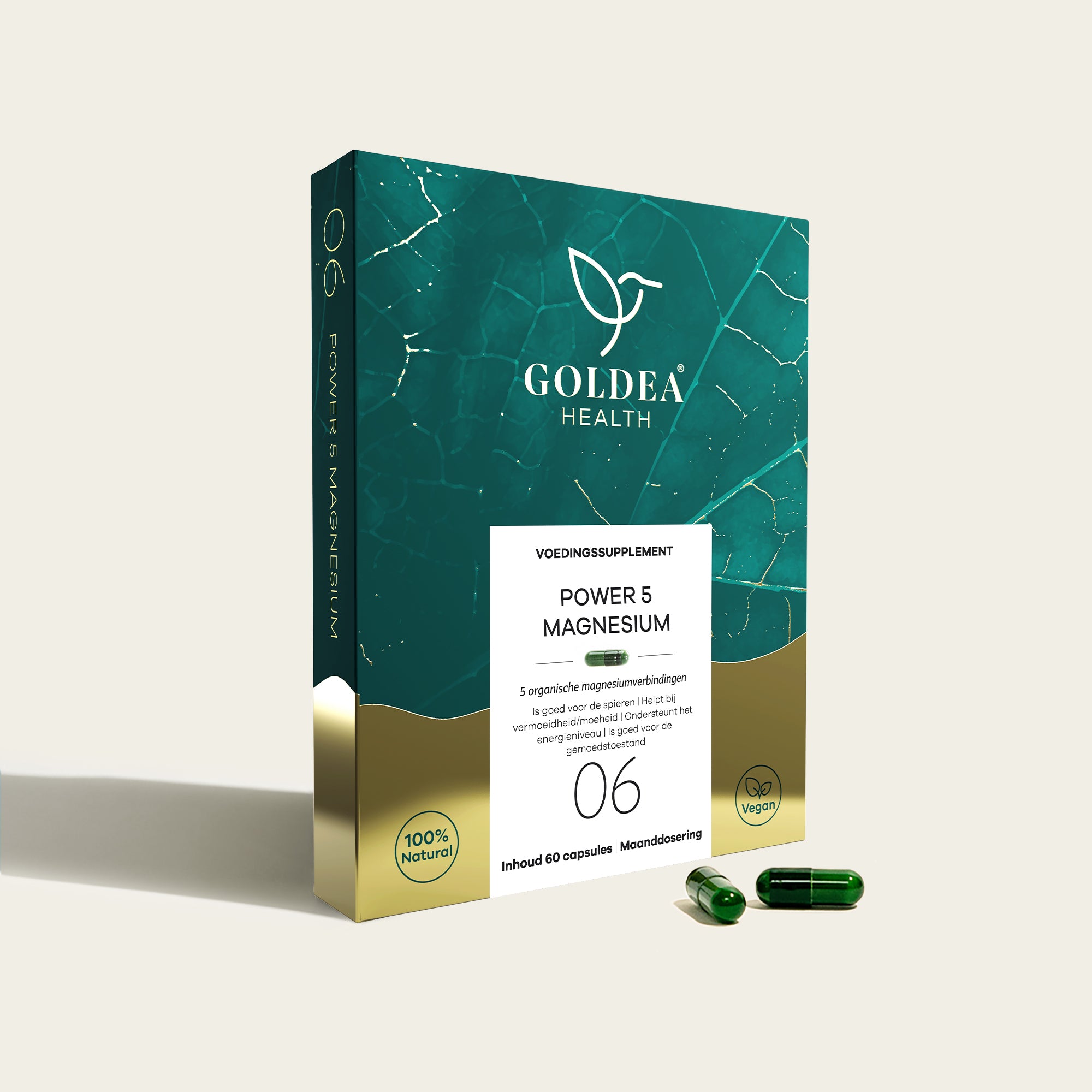

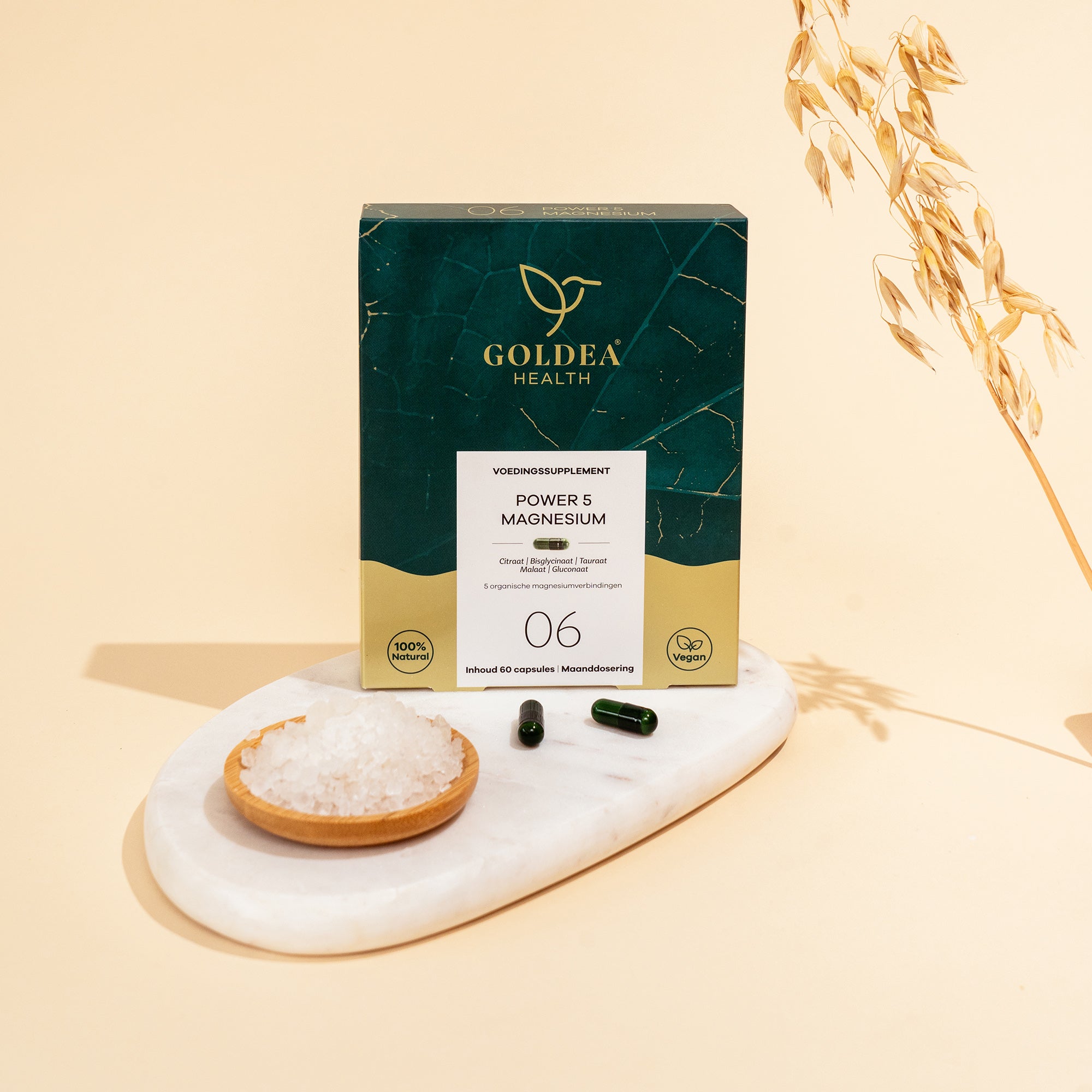

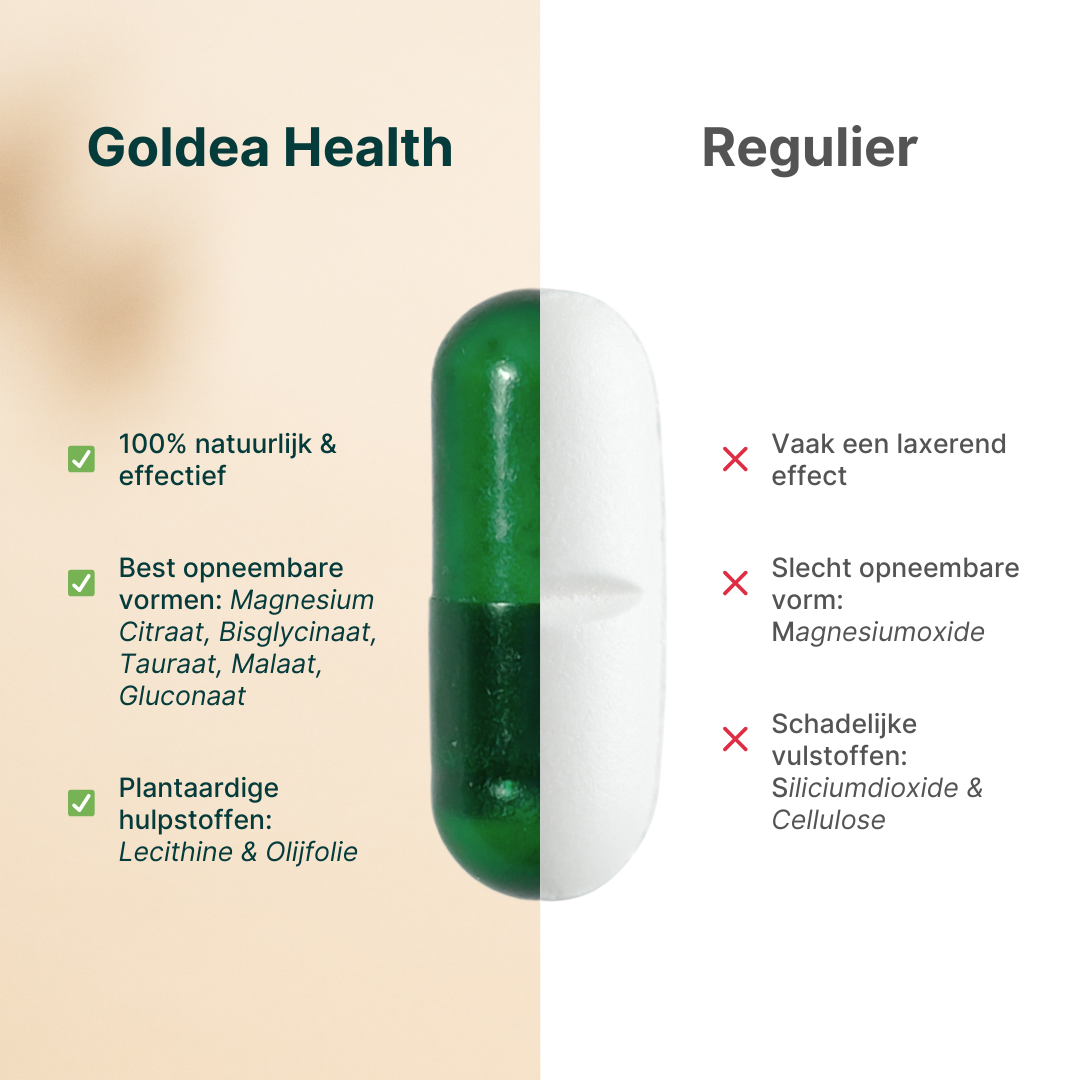
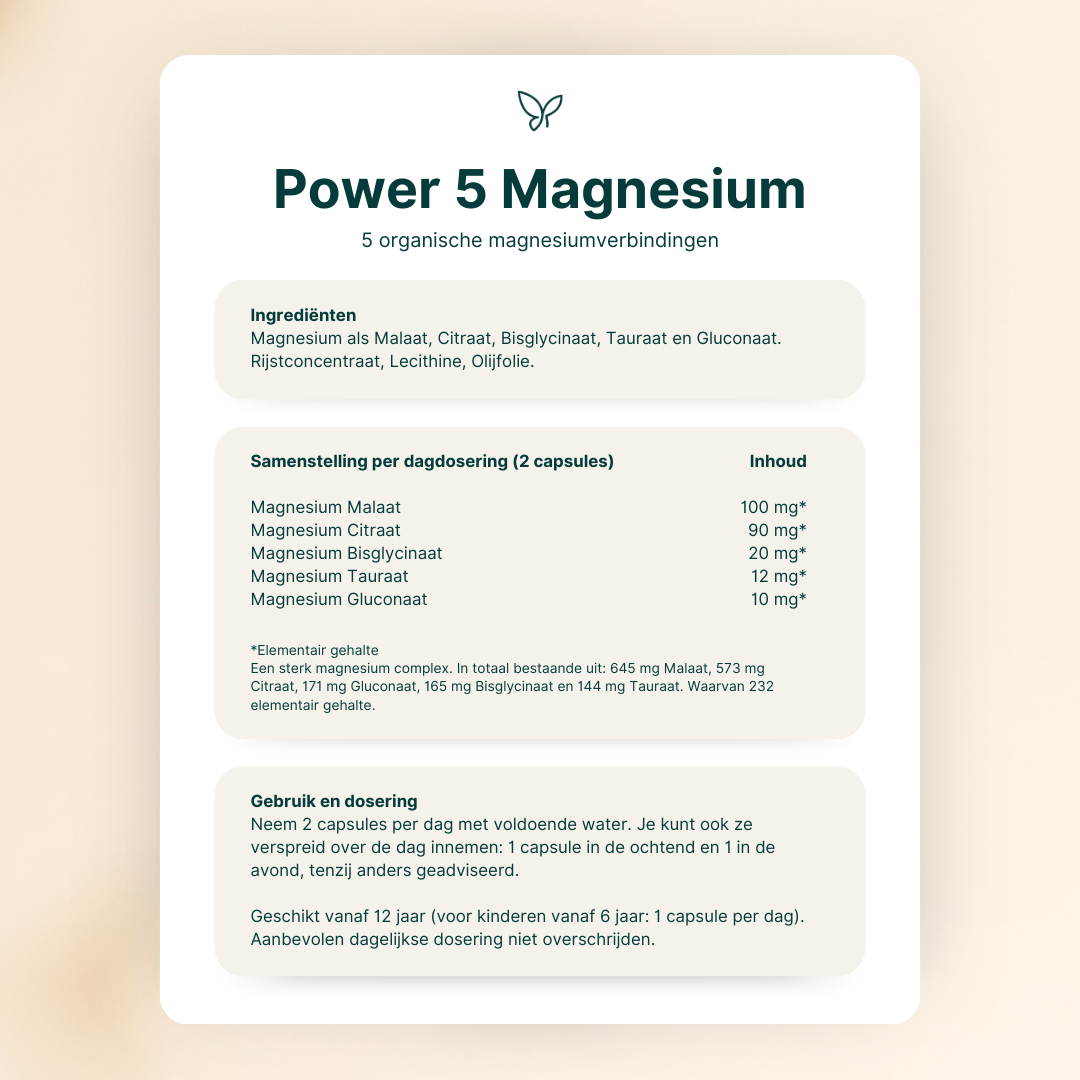








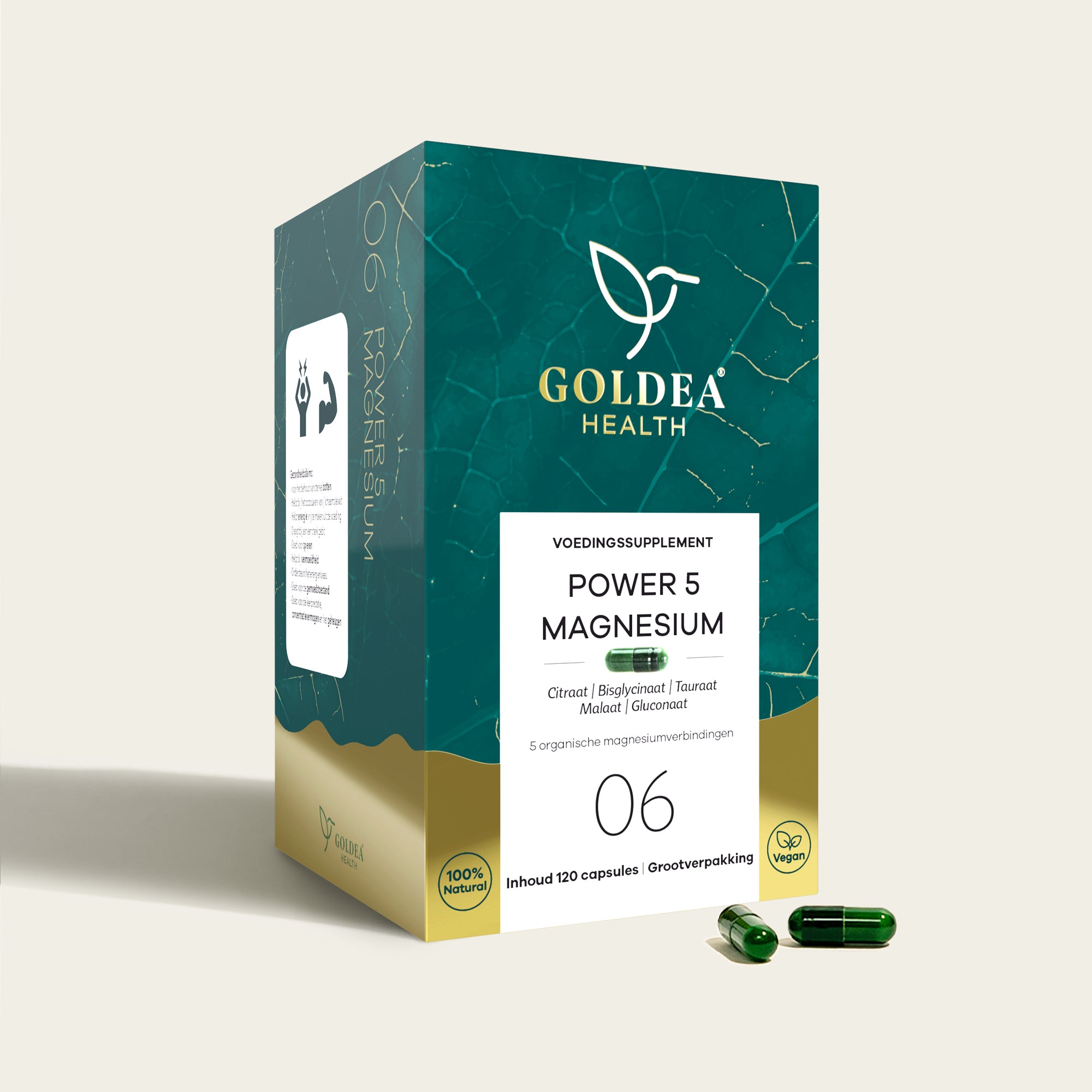

Power 5 Magnesium
If you could use some extra magnesium, take a supplement with the 5 most absorbable forms. This way, you can be sure it 's absorbed well and your vitamin D3 can also work effectively.
Summary
Magnesium plays an important role throughout your life, but even more so as you age . It can be especially beneficial to focus on this during menopause , as it helps keep your bones strong and reduces your risk of osteoporosis. It can also contribute to a calmer nervous system and relaxation , giving you a more peaceful experience.
Most people going through menopause don't get enough magnesium to meet their needs . A supplement can be a valuable support.
Read more here about how you can stay vital and strong as a woman over 50


Goldea Sunday News
This blog was written by Laura Contreras , an orthomolecular therapist and registered intestinal therapist. In my practice, I treat a wide variety of complaints daily, from digestive issues to fatigue and skin problems.
Want more practical tips and scientific insights that will truly help you achieve optimal health? Sign up now for our Goldes Sunday News and receive a short newsletter every Sunday.













